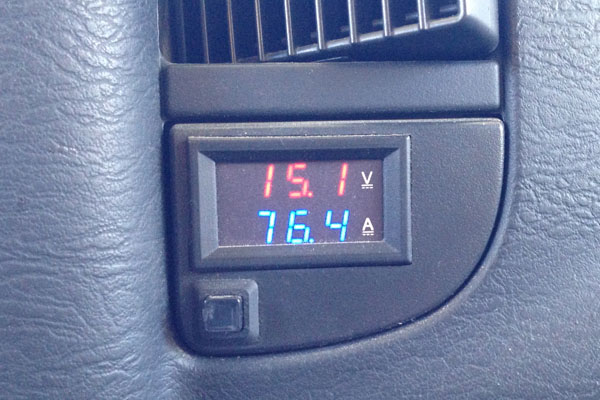Forum Discussion
msiminoff
Dec 23, 2013Explorer II
Wo.ody wrote:
-How do you determine the max input amperage (less 15%) your system can handle?
-What component in the electrics determine what amperage is sent to the TC battery series?
-Can you send too many amps (too hot so to speak) back into the battery series?
Hi Woody,
- The amount of current that you charging system can "handle" will be based on the output rating of your alternator, the size of the cabling from the alternator to the battery (bank), the state of charge of your battery, and the battery's internal resistance.
- There are several "components" that all work together and affect the charge amperage (e.g. alternator, wiring, fuses, battery chemistry & SOC), but in terms of the electrical control, the electronic device that does that is called a voltage regulator.
- No, you cannot "send too many amps back into the battery"… unless of course the voltage is too high. That said, you most definitely can have too many volts, and if you do then you risk overcharging your (chassis & house) batteries.
In order to give you specifics about an appropriate alternator/charging plan for your truck & TC, you will need to let us know more about your system, and your wants & needs; What alternator(s) are you currently using? What brand and model batteries do you have? How quickly do you need to charge your batteries? How far do you typically discharge your battery before recharging? What other loads do you anticipate operating from the alternator? What's the output voltage from your truck's alternator at high-idle? Do you have budget constraints?
MrWizard wrote:
As the engine and alternator warm up , the max voltage drops to about 13.6
I respectfully disagree (acknowledging the differences between vehicles and the fact that I have an aftermarket alternator)...
Here are a couple of photos of my in-dash volt/ammeter I snapped this past Friday afternoon (12/20) as I was heading out for a weekend camping trip with my family. Ambient temp was around 60ºF and the the voltage never once dropped below 14.6V during the course of the 1 hour drive to our destination.

This pic (45.4A @ 14.9V) is with the engine running, shaded solar panels, battery bank at ~80% SOC, and no other loads operating in the camper

This one taken 40 minutes later indicates 76.4A (15.1V). The additional current is from the refrigerator running on 120Vac via the inverter (battery now at ~87%)
smkettner wrote:
Put 100 to 250 watts of solar on the TC roof and the issue might just go away. Otherwise for real charging control from the alternator... use an inverter (powered by the truck 12v system) to drive the TC charging system.
I agree that solar is a great way to charge RV batteries and probably a better first-step than a fancy-shmancy alternator charging scheme.
However I'm not in favor of charging while driving by adding an inverter and battery charger to the mix… that's just too lossy, complicated, and expensive… especially if the batteries are deeply discharged and you're hoping to charge quickly.
When paired with an appropriate voltage regulator & wiring, a high output alternator can generate 2X the current of any RV battery charger I have ever seen, and it will do so more reliably and for fewer dollars. Besides, if the engine is running then the alternator is already spinning, so why not use it?
Cheers,
-Mark
About Technical Issues
Having RV issues? Connect with others who have been in your shoes.24,348 PostsLatest Activity: Jan 11, 2026